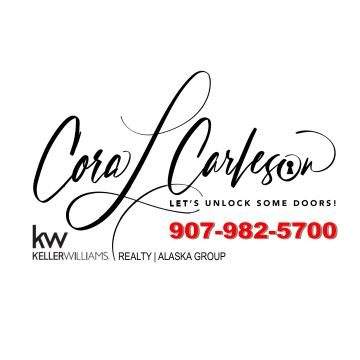Ask Cora


Why do I have to pay closing costs AND a downpayment?
Hey Cora, What are closing costs? I heard that if I am buying a home and I put a percentage down on said home, then I still have to pay closing costs. Someone said that could be as much as 3% of the purchase price. Is that true? Signed Skeptic
Dear Skeptic, Yes, it’s true. If you are getting a loan from a mortgage company or bank, these costs can be that high, up to 3%. If you are buying something with cash, closing costs are a lot less. If you have a seller that will owner finance for you, it is also less.
Let’s break this down and look at it the way a bank looks at it. Here are 15 most common expenses for closing costs: Anything that has to do with getting a loan is the buyer’s responsibility.
Credit report: this is usually around $25 to $100. This is one of those fees that the mortgage company charges that is at their discretion, each mortgage company or bank has their own fee.
Loan origination fee sometimes called Brokers Compensation fee: this is usually 1% of the loan amount and it pays the mortgage broker for their work on the file.
Document prep fee or Underwriting fee: this varies from company to company. Some people call these “junk” fees, so it’s something you need to look at when comparing mortgage companies. They can run anywhere from $120 on up! I have seen them as high as $1000. It also depends on the price of the house. So, be sure to ask.
Title Insurance: well, you know what that is, we talked about it last month! The seller provides an owner’s policy and depending on the type of financing you are getting, you may be required to purchase additional title insurance. Now, this is not homeowner’s insurance, this for the title of the property. Sometimes this is called ALTA Title, this stands for American Land Title Association. It’s a fee that the buyer pays for at closing, an additional policy that protects the buyer and the mortgage company. The mortgage company will tell you if they are requiring this additional policy.
Settlement closing fee: sounds like a junk fee, doesn’t it? Well, it’s not. It’s the fee that the title company charges to prepare your documents, make all the copies, balance with the lender, notarize your documents, record them with the recorder’s office and collect money and write out the checks to everyone. It’s usually around $350.00
Recording fees: the state charges for recording fees. It can be several hundred dollars depending on your loan documents, but typically around $100
Attorney Deed Prep Fee: this is probably the cheapest attorney bill you will ever receive! Usually comes in around $65.00. This is the documentation that is recorded and transfers the title from the seller’s name into your name. But the attorney doesn’t represent you, they are just a third party that prepares the document that transfers title into your name.
Appraisal fee: if you are getting a loan, the bank wants to make sure that this property is worth what they are loaning you. That appraisal cost is one that is usually required for the loan, so it falls on your shoulders as the buyer. I have seen the range from $850.00 to $1250.00. Even though this is a closing cost, they will want this upfront, long before you close. So, make sure you have that ready for them.
Wire Processing fee: if they are going to send or receive wire funds, and most likely they will from your lender, there is a fee – around $25 big ones!
Homeowner’s insurance: that is really just something you are paying in advance. As you know, the mortgage company pays your taxes and insurance for you. Now don’t get all excited, you pay for it, they just write the check for you! They keep this money in an escrow account and when the bill comes due, it get’s paid from this escrow account. Some loan programs require that you pay 6 months of premiums in advance to get money in this account, others, 3 months. Estimate round $250.00
Property taxes: remember what we said in paragraph 10? Property taxes will work the very same way 3 to 6 months of reserves in this escrow account. Sometimes, it’s called an “impound” account – but I don’t like that word, it sounds like I am getting my car towed away!
VA funding fee: if you are a veteran or active-duty military, you are probably eligible to use a VA loan. These have a funding fee. Sometimes, this fee is several $1000’s of dollars! But, fear not soldiers, it’s financed into your loan so you do not pay this as a closing cost, you can, but you don’t have to.
RD funding fee: same as VA, it’s a fee that is calculated into you loan payment.
Sales tax: yes there is sales tax and it’s a whopping $12.50! If you are in the Wasilla, Houston or Palmer city limits it can be more. Not much more though, only a few cups of coffee’s worth from Starbucks.
Flooding areas determination fee: There is a fee for flood determination, this is about $40 to make sure that your home is not in a flood plain, there is a tax registration fee about $20 that is there so that if you stop paying your mortgage payments, the lender or investor is notified by the property tax entity that you are not making your tax payments. This prevents the lender from losing their collateral due to nonpayment of taxes.
Do you see how quickly all these can add up? Closing costs are a real thing, and you should calculate about 2.5% for these costs on top of your down payment. Best practices? When you meet with a lender be it in person, on the phone or online, ask what the closing costs will be, they will send you an estimate. You can ask what each expense is for. Okay there’s the cold slap of reality for you. Now, let’s go buy a house, shall we?
